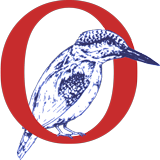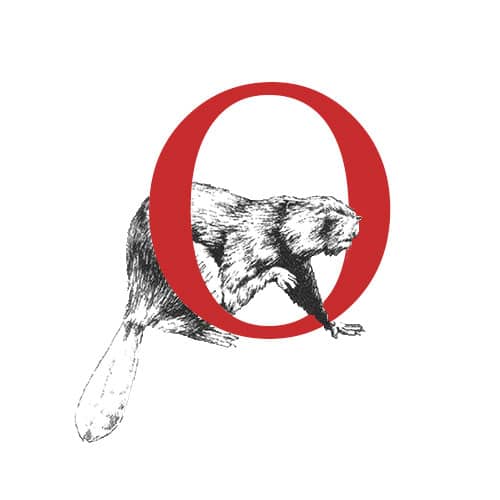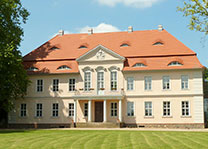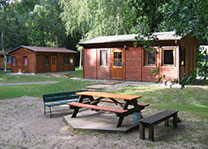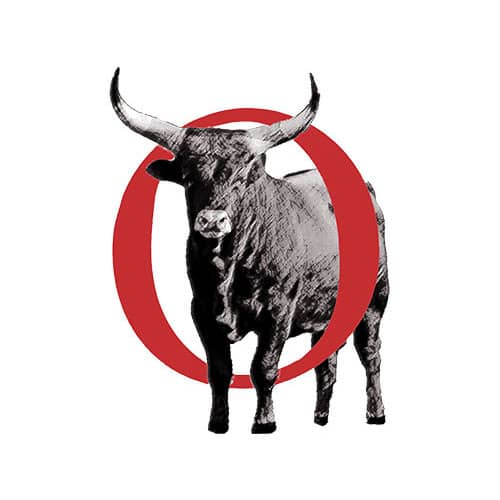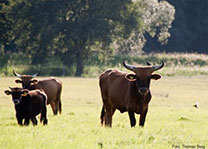Woidke’s national park policy failed
“Almost ten years after the order of the land reorganization for the Unteres Odertal National Park by the Brandenburg Ministry of Agriculture, the responsible state office for land reorganization sought a conversation with the largest property owner, the Förderverein, for the first time on Friday, July 17, 2009, and announced that it intends to assign the association to Zone I (total reserves). Since the land reorganization was ordered, the association has insisted on being assigned to Zone II (50% of the national park), as the decision on land reorganization from 2000 also provides.
According to this decision, the National Park company, i.e. the Ministry for Rural Development, Environment and Consumer Protection (MLUV), would have to instruct itself in Zone I. Only when all public-sector areas have been exchanged for Zone I can one think of instructing the private association there as well.
Contrary to its own order resolution, however, it was always the aim of the MLUV not to instruct the association in Zone II, as is legally required, but instead in Zone I (total reserves).
The association will not accept this illegal practice, which contradicts the minister’s own order, for the following reasons:
1. As the owner of the total reserves, in which use should no longer be possible in the future, the association no longer has any options for nature conservation. However, he has the interest and the competence to be able to carry out species and biotope protection measures on his land in the long term.
2. Although the association has to bear regular costs on designated total reserve areas, eg for the water and soil association, it can no longer generate any income. However, this seems to be exactly the intention of the MLUV, namely to withdraw income from the association and burden it with expenses, which sooner or later leads to insolvency.
Contrary to what has been promised, the amended Brandenburg Water Act does not stipulate that an owner of total reserves is exempt from fees for the water and soil association. He may only ask the MLUV to reimburse the fees paid, which may or may not be granted to him in full or in part, depending on the cash situation and the MLUV’s discretion.
3. The association is committed to the political requirement to take half of the national park out of use and leave it to nature. However, the legal designation of total reservations is the responsibility of the state and not of a private association. For this reason, as can be read in the administrative decision, the land itself must take possession of the planned total reserves.
However, it would be more important to realize at short notice, first of all, to stop the costly and energy-consuming annual pumping of the Fiddichower Polder (10) immediately and to leave the inlet and outlet structures open all year round. The farmers working in the area have already agreed to this procedure in accordance with the water management feasibility study of the MLUV, if their areas nevertheless remain eligible.
On the other hand, it will be very difficult, as planned by the state, to take around 3,000 hectares of agricultural land from the funding framework through the formal designation as total reserves. For the farms this would mean a loss of subsidies of € 1–1.5 million per year. If that is to be implemented, the ministry has to do it itself and not blame a small association to accuse it of wanting to suppress the farms. It doesn’t go together.
The association regrets that despite numerous compromise proposals on its part, it has not yet come to a negotiation result. Without prejudice to the clear legal situation, he would be willing to voluntarily take over a considerable amount of total reserves as part of an overall solution to be negotiated. Incidentally, more than 60% of the total reserves already identified today belong to the association. The state of Brandenburg has a lot of catching up to do in its own national park.
There are already five lawsuits pending at the competent administrative court in Potsdam against five rulings by the MLUV against the association. A lawsuit is directed against a renewed ban on transferring the club areas to the National Park Foundation. The MLUV had already approved this transfer of land, which was planned from the beginning, in a settlement before the Potsdam Administrative Court in 2006, but then did not keep its word. The other four disputes concern the MLUV’s reclaims totaling around € 1 million, which the MLUV opened after it had already declared all financial claims against the association to have been settled in the above comparison from 2006.
The association can look forward to the outcome of the legal disputes with great serenity. It is to be expected that the state of Brandenburg, as in earlier proceedings, will again be certified by the courts as having “illegal and immoral behavior” in dealing with strangers. You don’t really have to have that again.
But nowhere else do administrative court proceedings take as long as in Brandenburg, so it will cost a lot of time and money. This does not harm the association, but it does harm the nature conservation of the country. That is why the association hopes for a sensible negotiated solution in the interests of the matter at the latest after the upcoming elections.
Bad advice, Mr Woidke ended his term of office as minister, as he began 6 years ago, with a hopeless, unnecessary dispute to the detriment of nature conservation.
Without prejudice to the looming dispute, we will do everything we can to ensure that the good coöperation of nature conservation on site does not suffer. ”
Thomas Berg
CEO
